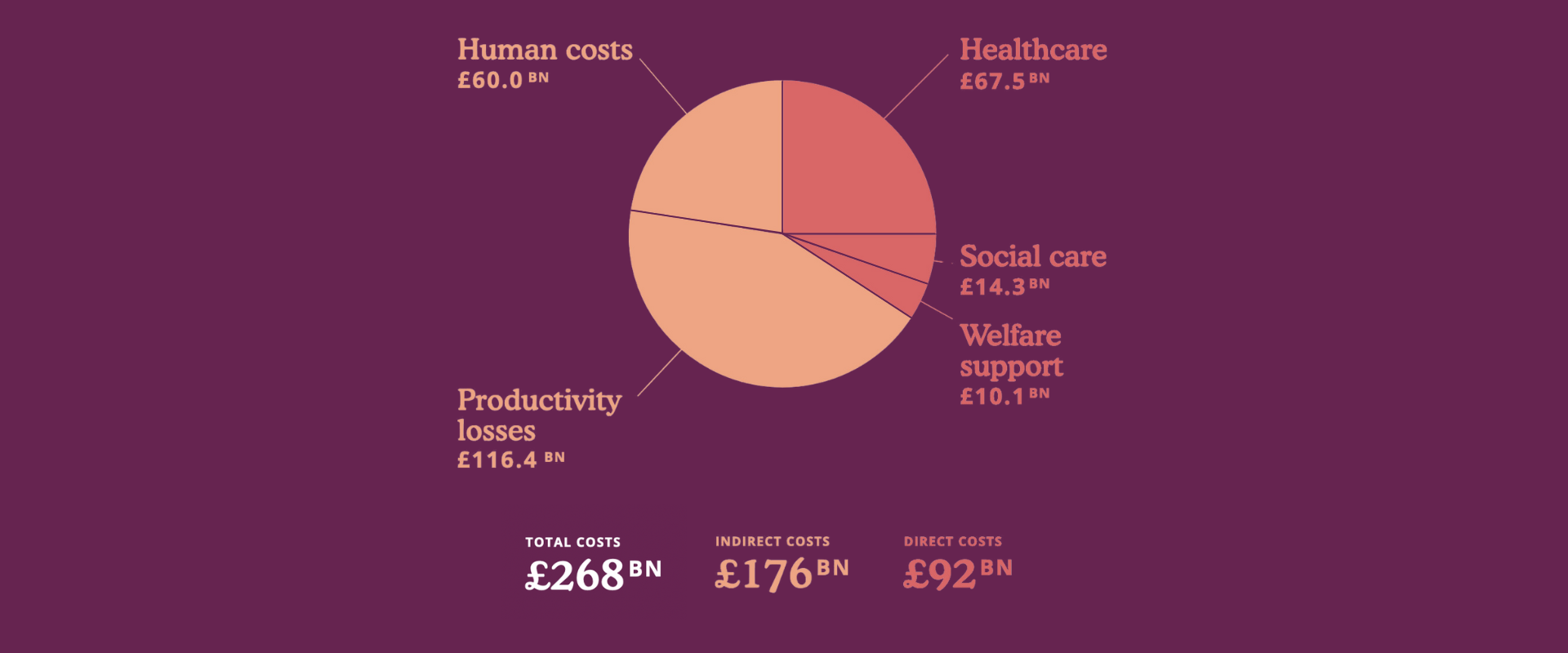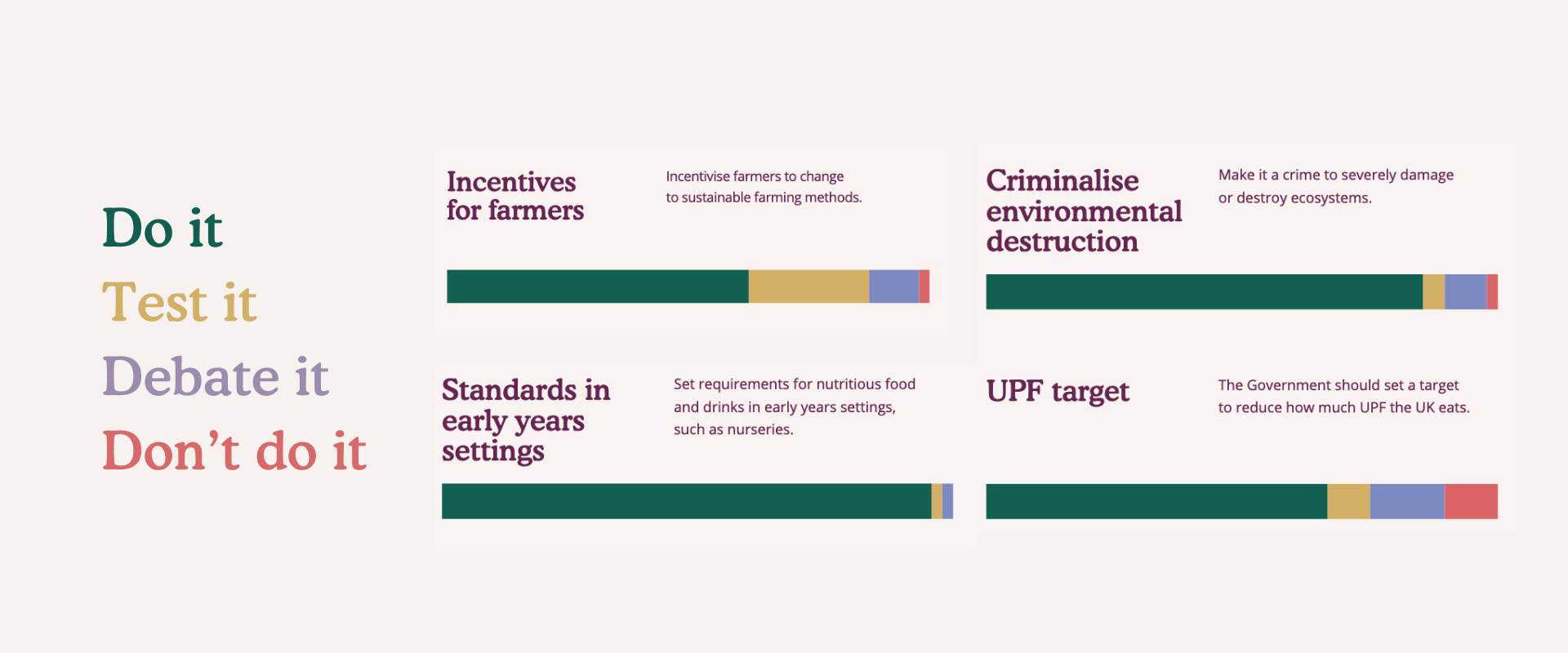

The Food Conversation is the UK's largest-ever public dialogue about our food system. Since 2023 FFCC has hosted in depth deliberations in 12 parts of the UK and supported over 75 communities to host their own community-led food conversations reaching hundreds of citizens. We have learned an enormous amount about what citizens want, and the evidence continues to grow.
In May 2025, we published A Citizen Mandate for Change, showing widespread consensus and consistent values when it comes what citizens want from food. It follows the launch of the Citizen Manifesto to Fix Food, which sets out five areas of
change that citizens want politicians to address. It is their mandate to
make it a government mission to fix food.
We also published a report in March 2025 detailing what we have learned from the community food conversations so far – the impact they’re having locally and nationally and how active participation from citizens can help transform the debate on food. You can explore in-depth analysis for each set of deliberations here, including a final UK-wide report.
Now, citizens from The Food Conversation are helping to shape the development of the government’s new Food Strategy through a Citizen Advisory Council. Find out more here.
Citizens' calls for action are backed by evidence from economist, Professor Tim Jackson, The False Economy of Big Food.
The report has uncovered that unhealthy food is costing the UK more than £250bn every year. For the first time ever, direct and indirect costs of diet-related ill health have been calculated by combining healthcare costs, social care costs, welfare spending, productivity losses, and the human cost of chronic disease and identifying what proportion relates to food.
“There needs to be government initiative. They need to put health before profit”
Tahreen, West Yorkshire

While citizens have deep rooted concerns about the food system, they are inherently solutions-focused in their thinking. The design of The Food Conversation has enabled them to consider many potential ways forward. Throughout the process, citizens have considered a raft of policy solutions that have been proposed previously – from sources such as the National Food Strategy, the United Nations, UKRI funded research, and other charities and NGOs.
“I want the government to start viewing food policy as a really important area”
Nat, Sheffield

Food matters to everyone. It is at the heart of a resilient, thriving economy and healthy, prosperous communities. The UK food industry is worth over £100bn, yet many children go to bed hungry, many farmers are struggling to survive, and the cost of diet-related ill health is spiralling. Globally the way food is produced contributes significantly to the climate and nature crises. Yet, governments have struggled to grasp the nettle on food system policies. Attempts to change anything about the way food works have floundered as policymakers have disagreed about what people want from food.
The Food Conversation aims to change this and provide a well evidenced view of what citizens really think about food – exploring how citizens understand the complexities of the issue and the necessity for trade-offs.
Over 18 months, we set out across the four nations in 2023 and 2024 to understand the public perception of food systems and their appetite for change. We held conversations in Birmingham, Cambridge, Northumberland, West Yorkshire, East Kent, North and South Wales, Cornwall, South London, Northern Ireland, the Lothians, and Caithness, Sutherland, Ross, Orkney and Shetland.
The whole process is designed to be easy to understand and engaging, so that everyone – no matter what their background or interest – can participate. Nonetheless, it is methodologically robust, enabling in-depth conversation and deliberation. To find out more about the process, visit the FAQ page on The Food Conversation website.
Over 75 communities and hundreds more citizens have now hosted their own Food Conversation through a free, online toolkit.
